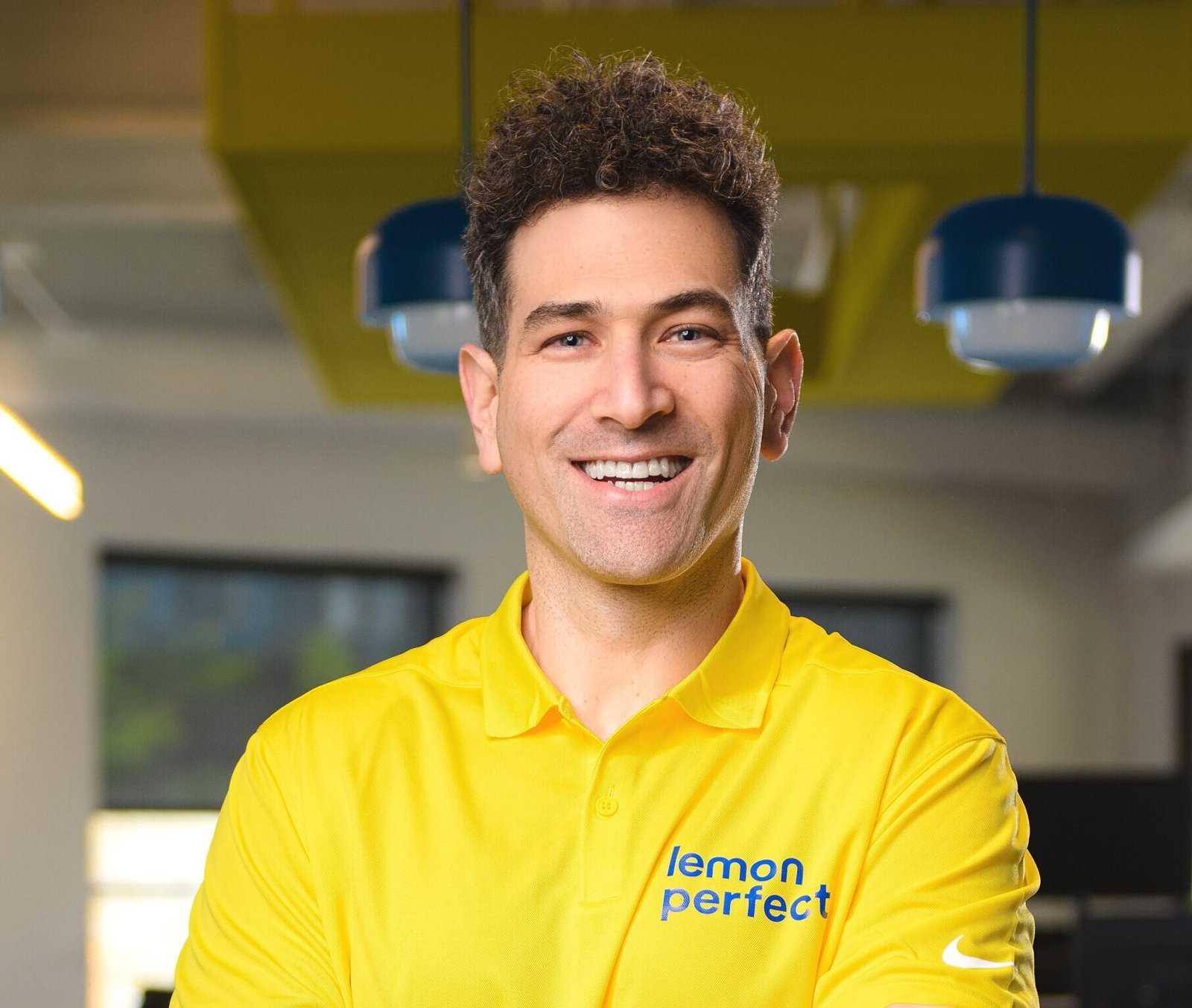I recently went one on one with Suneel Gupta. Suneel is the founder of telemedicine start-up Rise and is the emissary for Gross National Happiness between the United States and the Kingdom of Bhutan. Suneel also teaches a class on innovation at Harvard Medical School. Suneel’s new book Backable: The Surprising Truth Behind What Makes People Take a Chance on You dives into who gets backed, who doesn’t, and why.
Adam: Thanks again for taking the time to share your advice. First things first, though, I am sure readers would love to learn more about you. How did you get here? What experiences, failures, setbacks or challenges have been most instrumental to your growth?
Suneel: Thanks for having me! It’s funny you should ask about failures because in some ways my story—a cautionary tale of a career that had gone off the rails through canceled projects, missed promotions, and near-bankrupt startups—all changed thanks to a conference called FailCon—which stands for Failure Conference.
Believe it or not, I was nominated twice to speak at the conference! I agreed to be the keynote speaker because I was trying to raise money for my startup Rise, a telehealth service that matched you with a personal nutritionist over your mobile phone, and I thought investors would be in the audience. Turns out, there were no investors there that day but there was a reporter scribbling notes. Then, one random Saturday morning, I overheard my wife, Leena, on the phone with her mother. “No, we’re not moving home, Mom,” she said. “Yes, I know San Francisco is very expensive.” When I walked into the room, Leena was holding that day’s New York Times open to a full-length story on failure, with my face at the top. I had seen mug shots that were more flattering!
The piece went viral—as in if you googled “failure” at the time one of the top results you’d find was a NYT article featuring me. I had spent a career trying to craft an image of success and now I was the poster child for defeat. Old law professors reached out to help me find a job. Friends I hadn’t spoken to in years simply messaged, “Are you okay?”
Realizing I could no longer hide behind a fake-it-till-you-make-it attitude of success, I decided to give this new identity a try. I began emailing highly successful people using the Times article to break the ice. I’d write things like, “As you can see from the article below, I don’t know what I’m doing. Would you be willing to grab coffee and give me some advice?”
That article paved the way to hundreds of honest conversations with fascinating people.
It led to a life-altering discovery. People who change the world around them aren’t just brilliant . . . they’re backable. They have a seemingly mysterious superpower that lies at the intersection of “creativity and persuasion.” And, I learned that this superpower could be learned.
Adam: How did you come up with your business idea and know it was worth pursuing? What advice do you have for others on how to come up with and test business ideas?
Suneel: When I was considering a new startup, I created a spreadsheet of business ideas. The columns were all the classic entrepreneurship factors — things like market size (the bigger the better) and competition (the smaller the better). But when I shared this spreadsheet with a mentor, she asked me a simple question: “Which one of these ideas lights you on fire?” After scanning the spreadsheet, a harsh reality hit me: none of them did. At the time I was working at Groupon, and all the ideas in my mind were related to e-commerce. But while I was intellectually interested in e-commerce, I wasn’t in love with the market.
Had I pursued one of those ideas, I would have quickly run out of emotional runway. I scrapped my spreadsheet and created a new one. This one didn’t include factors like market size and competition. Column A listed “Ideas” and Column B answered a simple question: In love? (yes or no). That exercise forced me to begin reflecting on ideas that truly made me come alive. And then I remembered how a nutritionist helped save my father’s life.
It’s not enough to figure out whether your idea fits the market — you have to figure out whether an idea fits you. Does it stoke something deep inside you? Lin-Manuel Miranda says he “falls in love for a living.” Ideas like Hamilton take years to create, so Miranda says when you have an idea, “you really have to fall in love with it.”
Adam: What are the key steps you have taken to grow your business? What advice do you have for others on how to take their businesses to the next level?
Suneel: I followed the steps of Backable people, including understanding that how you arrive at an idea can be as memorable and important as the idea itself. There are no shortcuts. You need to intoxicate them with effort. Early on, I was reluctant, even embarrassed, to let investors know that I recruited early customers for Rise by standing outside Weight Watchers meetings. And yet that—and the story about being kicked out or stopping the wrong person—turned out to be a part of the pitch they loved most, and how I was able to go from being the face of failure for the New York Times to being named the New Face of Innovation by the New York Stock Exchange magazine. I went from being rejected by every investor I pitched to raising millions of dollars. The Today show featured Rise, and Apple named us the Best New App of the Year. The Obama White House chose us to be its partner for tackling obesity. And ultimately, One Medical, a thriving company en route to an IPO, acquired Rise for multiple times its original value.
Adam: In your experience, what are the defining qualities of an effective leader? How can leaders and aspiring leaders take their leadership skills to the next level?
Suneel: We have this misconception to keep the spotlight focused on yourself. But that’s not what makes you a great leader. I like to say, “Forget Yourself”. Turn the focus away from you and towards others. Remember, you’re not representing yourself inside the room; you’re representing the person you want to serve. I recently coached an executive who had spent 15 years managing large teams inside high-growth companies. She was raised in Tel Aviv and served in the Israeli army before immigrating to the United States. She was a fully capable leader, and yet during presentations, she’d become so nervous that she’d sweat through her clothes. When Liz was presenting, she felt the spotlight burning brightly on her, and our job was to turn it away from her—and toward the person she was trying to represent. The concept immediately clicked for her. “I could be like an agent for my customer instead of some VP of marketing,” she said. Today, Liz is a sought-after speaker for large companies and marketing associations. And her approach is always the same—turn the spotlight away from her and toward her customer. Seeing yourself as an advocate for your idea or your customer takes you outside your own head and takes you to the next level.
Adam: What is your best advice on building, leading and managing teams?
Suneel: We’ve been led to believe that innovation is a two-step formula: a great idea plus great execution. But there is a “secret step” in between. This is where you turn outsiders into insiders so that when your idea reaches the execution stage you arrive together. Nearly every great movement, organization, and campaign can be traced back to this secret step.
In the 1940s, “instant cake mixes” were unveiled at grocery stores across the United States with lots of marketing and hype. All you needed to prepare a tasty dessert was to add water, pour the batter in a pan, and bake. It took less than half the time and effort of making a cake from scratch. Amazing—so marketers were stunned to find that their product wasn’t selling.
It took a psychologist named Ernest Dichter to figure out why. After cross-examining homemakers across the country, Dichter came to a shocking conclusion: the mixes made cooking too easy. They all but removed the consumer from the creative process. So, manufacturers tried something new — they removed the egg from the mix, requiring you to crack and mix one in yourself. Sales took off.
In the coming decades, researchers would see this pattern over and over again. Michael Norton from Harvard Business School, along with two colleagues, eventually named it “the IKEA effect” and demonstrated that we place nearly five times more value on a product we helped build than on a product we simply buy. “Time spent touching objects” leads to “feelings of ownership and value.”
In other words, let people crack their own egg into the mix. That way when you reach execution stage, you reach there together. I believe every successful organization, business, and movement can be traced back to this hidden step.
Adam: How can leaders create a culture that fuels innovation?
Suneel: Innovation and persuasiveness are two different skill sets, and dangerous things happen when we treat them as one. In one of the most telling examples, Dr. Alexander Fleming invented Penicillin but wasn’t a great communicator. As a result, it took him nearly 10 years to convince people that he had a winning solution. In the meantime, hundreds of thousands of people unnecessarily died from infection.
Leaders need to learn how to field ideas better. The most important business skill of 2021 is going to be becoming an “idea receiver.” People who know how to elicit the best ideas from the widest range of people—and support them to action—will create the best companies, and the brightest future. Here are three ways that leaders can do that:
1. Don’t ignore the introverts. Great leaders devise ways to look beyond the obvious extroverts and actively recruit people with different communication styles. At Google’s Area 120, co-founder Bradley Horowitz deliberately discounted charisma to help introverts have their ideas heard. A growing number of innovative companies, particularly during COVID have adopted “Brain-writing” over brainstorming, as Adam Grant pointed out at this year’s world economic forum. Work to ensure that table-pounders don’t drown out softer voices in the room. Loudness has never been, and never will be correlated to intelligence.
2. Don’t ding someone if they don’t have all the details worked out. `A perfect pitch is not about being perfect. It’s about presenting an opportunity for others to get excited about the possibilities and join your cause. The Aspen Institute’s Henry Crown Fellowship Program, which has awarded fellowships to people like Senator Cory Booker and Netflix CEO Reed Hastings, doesn’t choose candidates because they have it all figured out, but because they are “not be fully-baked.” Rip a page from their playbook and look for ideas even when incomplete and see where you can help fill the holes.
3. Tune out style and listen to substance. While it’s general belief that you need to give a TED-style presentation to be backable, the most convincing leaders show us that’s not the case. Elon Musk is known as a notoriously poor communicator and Sir Ken Robinson (who holds the #1 TED spot) slouches with a hand in his pocket as he talks about why school kills creativity. When Steve Jobs launched the iPhone, he said “uh” at least 80 times during his speech. These mannerisms are the opposite of what you’d learn from public speaking courses like Toastmasters or Dale Carnegie. What really made these speeches so influential was not charisma, but conviction. Listen for passion, not polish, in the pitches you hear.
Adam: What are the key takeaways from your new book? Who gets backed, who doesn’t, and why?
Suneel: There are certain people who seem to have an “it-quality” that allows them to shine in key moments, including interviews, meetings, auditions, and pitches. Even when they’re not the obvious choice, we want to take a chance on them. A producer took a chance on Lady Gaga after she was dumped by Def Jam Records. Investors took a chance on Jeff Bezos before he had an entrepreneurial track record. A district attorney took a chance on Kamala Harris before she was a proven prosecutor.
I wondered: could that “it quality” be learned? Because being backable is no longer just for celebrities and CEOs. In today’s economy, it’s a quality that has gone from nice to necessary. No matter what type of change we’re trying to create – with our companies, our careers, our lives – we can’t do it alone. We need teams, hiring managers, investors, even friends and family, to believe in us.
After studying hundreds of backable people – from Oscar-winning filmmakers to iconic founders to military leaders to Michelin-star chefs — I realized that in the vast majority of cases, people learned how to become backable. In the book, I reveal the seven surprising secrets I learned.
Adam: What are your three best tips applicable to entrepreneurs, executives and civic leaders?
Suneel:
-
When you have a new idea, keep the idea to yourself for a while—nurture it, incubate it, don’t tell a soul, not even close friends. We are often told to share ideas quickly and get feedback. But that’s a mistake. New ideas are so fragile that even a well-intentioned “huh” can put them to rest. Inside companies, most ideas don’t get killed inside conference rooms….they get killed inside hallways. Give your idea “incubation time” so that you can build conviction in it. Then share.
-
Don’t focus on how new your idea is, but on how inevitable it is. A Nobel-prize winning theory showed us the pain from betting on the wrong idea is 2X as powerful as the pleasure from betting on the right one. So, when it comes to uncertain backers, don’t just excite them with possibility, show them why the idea is inevitable. The only emotion more powerful than missing is missing out.
-
During a big interview or pitch, don’t just run to your strengths, also steer into your weaknesses. Anticipate 3 objections and address them head on. If you avoid these concerns, they’ll nag at your audience and pull attention away from the stronger parts of your pitch. Reid Hoffman taught me this, a secret he learned early in his career when he was trying to make a career switch to product management, but he didn’t have relevant experience.
Adam: What is the single best piece of advice you have ever received?
Suneel: Play the Game of Now, which is something I learned from my mom, who against the odds, became the first female engineer at Ford.
Every backable person I’ve met, at some point in their career, learns to play the Game of Now. When Brian Grazer was trying to break into Hollywood, he convinced Lew Wasserman, one of the industry’s most influential rainmakers, to give him some career advice. Two minutes into the meeting, while Grazer was sharing his background, Wasserman interrupted and said, “All right, enough! Pull out a piece of paper.” Then Wasserman told him to start writing — to stop talking about writing, and just write. That piece of paper led to Splash, starring Tom Hanks, and Grazer soon after formed Imagine Entertainment with Ron Howard. He looks back at that single act — writing down his idea — as a moment that would define his career. The moment he began to play the Game of Now.
There are three words that hold most of us back: “I’m not ready.” I’m not ready to start my business; I’m not ready to write that proposal; I’m not ready to speak my mind. We’ve all felt that way. Even as I typed the final words of my book, there was a voice saying, Why you? Why would anyone want to read what you have to say?
But after spending over five years interviewing and studying people who’ve changed the world, something occurred to me: none of them were ready. A hedge fund manager with zero entrepreneurial track record wasn’t necessarily ready to build an online bookseller. Friends from design school weren’t prepared to disrupt the hospitality industry. A fifteen-year-old from Stockholm wasn’t ready to lead an environmental movement. But today, Amazon is not only the world’s largest bookstore, but the biggest online retailer. Hundreds of thousands of people check into an Airbnb every single day. And Greta Thunberg has been named the youngest ever Person of the Year by Time magazine.
Adam: Is there anything else you would like to share?
Suneel: I think we can all use a little of that “it quality” right now. 20 million people lost their jobs in 2020. There’s a mountain of evidence showing that the vast majority of us who are employed are disengaged with what we do on a daily basis. The pandemic has been a reminder that life is brief…and waiting for change is no longer an option. So, I hope people will play the Game of Now. It may not always lead to success. But the opposite of success isn’t failure; it’s boredom.









